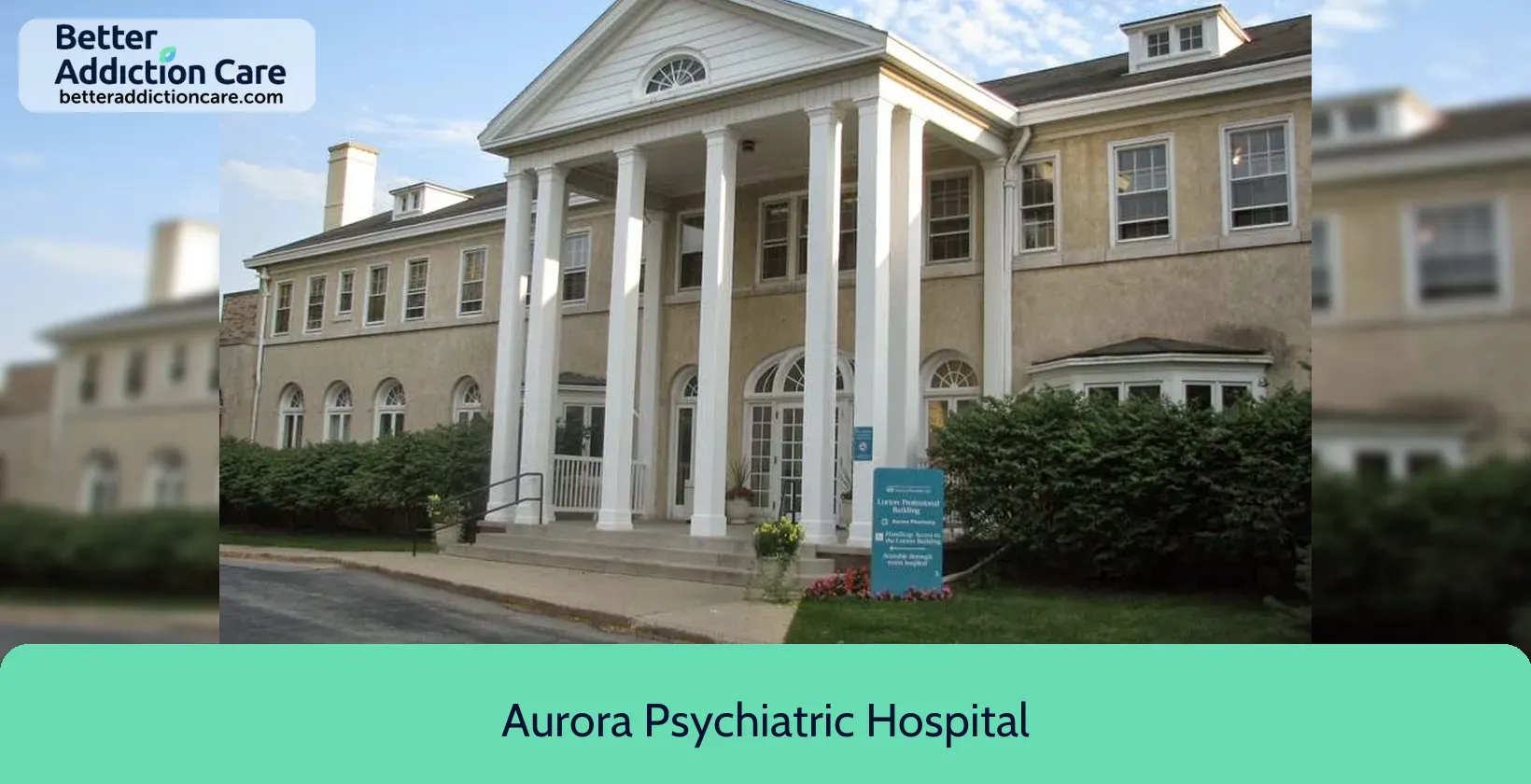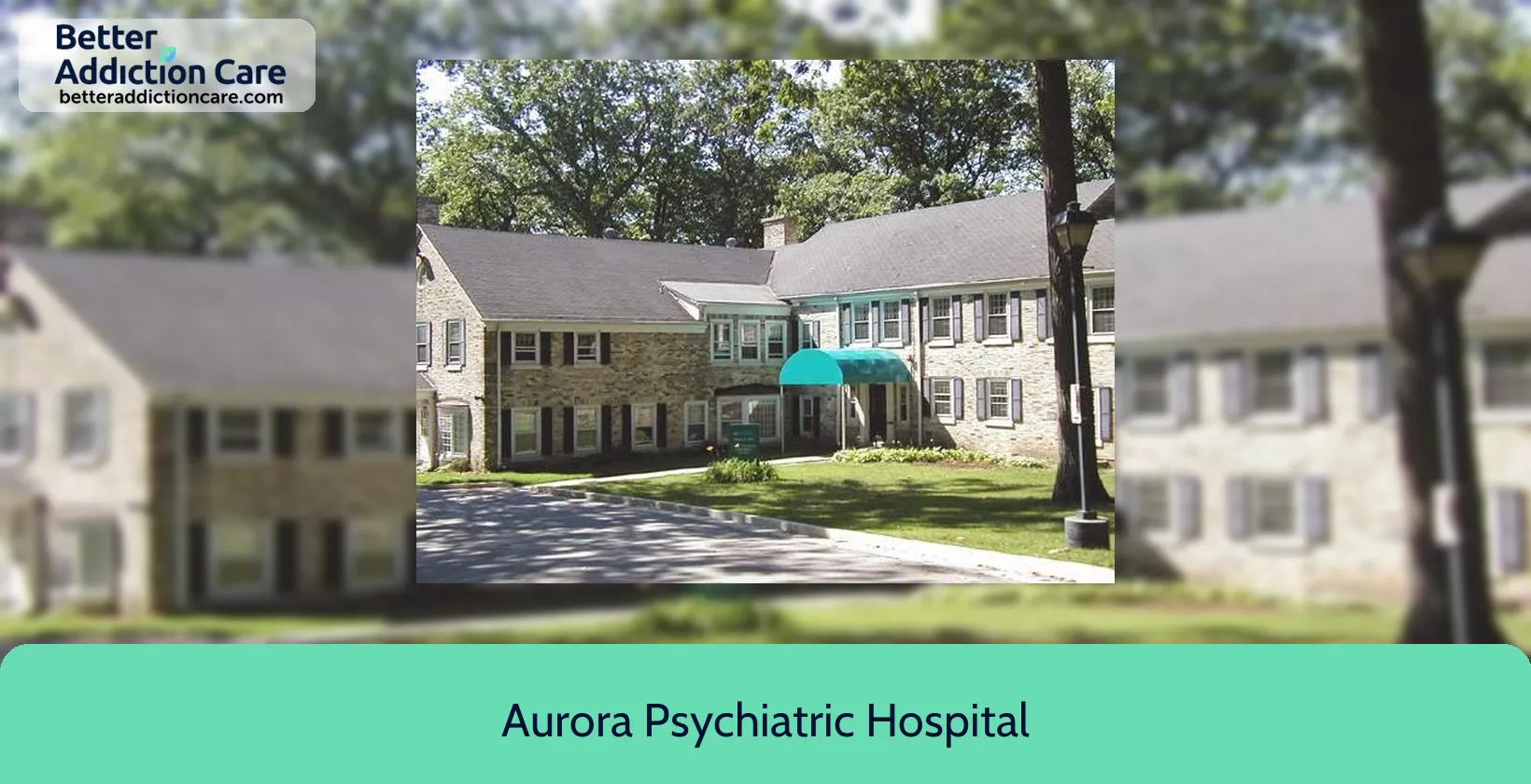Overview
Aurora Psychiatric Hospital, located in Wauwatosa, Wisconsin, offers comprehensive behavioral health services, including inpatient psychiatric care, substance abuse treatment, an intensive outpatient program (IOP) for mental health, and a partial hospitalization program (PHP) addressing both mental health and substance abuse. These services are available to adults, children, and adolescents, providing targeted support at each stage of recovery.
Operating on the disease model of addiction, Aurora Psychiatric Hospital provides structured and supportive inpatient care designed to foster a safe and comfortable environment for recovery. Medical detox, combined with prescription medications when needed, assists patients in eliminating substances from their bodies, managing cravings, and maintaining a stable recovery. Through both group and individual therapy, patients work on cultivating healthy coping skills, reducing psychological dependency, building a robust support network, and enhancing relationship skills to strengthen overall well-being.
For those with opioid use disorder, Aurora offers a specialized program beginning with a three- to ten-day partial hospitalization program, followed by an intensive outpatient program that meets three hours a day, three days per week, with sessions available in the mornings and evenings. This program also includes regular check-ins with a psychiatrist and individual therapy, providing a customized approach to recovery tailored to individual needs.
As part of Advocate Aurora Health, Aurora Psychiatric Hospital benefits from a legacy of compassionate care and a broad network of health services across eastern Wisconsin and northern Illinois. Advocate Aurora Health originated from the 1984 merger of St. Luke’s Medical Center and Good Samaritan Medical Center in Milwaukee, evolving over the decades into one of the nation’s leading nonprofit integrated health systems. Today, Advocate Health spans 18 hospitals, more than 150 clinics, and 70 pharmacies in 30 communities, providing high-quality, accessible healthcare.
Aurora Psychiatric Hospital is accredited by the Joint Commission and listed by SAMHSA, reflecting its commitment to meeting the highest standards in healthcare and behavioral health treatment.
Aurora Psychiatric Hospital at a Glance
Payment Options
- Cash or self-payment
- Medicaid
- Medicare
- State-financed health insurance plan other than Medicaid
- Private health insurance
Assessments
- Screening for tobacco use
- Comprehensive mental health assessment
- Comprehensive substance use assessment
- Screening for mental disorders
- Screening for substance use
Age Groups
- Adolescents
- Children/adolescents
- Young adults
- Adults
- Seniors
Ancillary Services
- Case management service
- Family psychoeducation
- Suicide prevention services
- Mental health services
- Alcohol use disorder clients only
Highlights About Aurora Psychiatric Hospital
7.13/10
With an overall rating of 7.13/10, this facility has following balanced range of services. Alcohol Rehabilitation: 8.00/10, Drug Rehab and Detox: 6.92/10, Insurance and Payments: 6.00/10, Treatment Options: 7.58/10.-
Alcohol Rehabilitation 8.00
-
Treatment Options 7.58
-
Drug Rehab and Detox 6.92
-
Insurance and Payments 6.00
Accreditations
The Joint Commission:

The Joint Commission accreditation for addiction and behavioral health is a prestigious recognition signifying a facility's commitment to delivering high-quality care and safety for individuals dealing with substance abuse and mental health issues. It involves rigorous evaluations and assessments, ensuring patients receive evidence-based treatment and exceptional care. This accreditation demonstrates a facility's dedication to continuous improvement and ethical practices, building trust among patients and healthcare professionals seeking top-tier addiction and behavioral health services.
Treatment At Aurora Psychiatric Hospital
Treatment Conditions
- 24-Hour Clinical Care
- Mental health treatment
- Alcoholism
- Substance use treatment
- Co-occurring Disorders
Care Levels
- Partial Hospitalization Program
- Outpatient
- Short-term residential
- Outpatient day treatment or partial hospitalization
- Intensive outpatient treatment
Treatment Modalities
- Cognitive behavioral therapy
- Integrated Mental and Substance Use Disorder treatment
- Activity therapy
- Telemedicine/telehealth therapy
- Substance use disorder counseling
Ancillary Services
Languages
- Sign language services for the deaf and hard of hearing
Additional Services
- Pharmacotherapies administered during treatment
- Mentoring/peer support
- Drug or alcohol urine screening
Special Programs
- Veterans
- Active duty military
- Members of military families
- Children/adolescents with serious emotional disturbance (SED)
- Persons 18 and older with serious mental illness (SMI)
Contact Information
Read our Most Recent Article About Drug Addiction
DISCLAIMER: The facility name, logo and brand are the property and registered trademarks of Aurora Psychiatric Hospital, and are being used for identification and informational purposes only. Use of these names, logos and brands shall not imply endorsement. BetterAddictionCare.com is not affiliated with or sponsored by Aurora Psychiatric Hospital.











